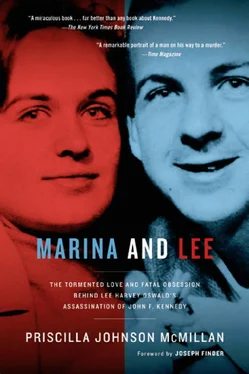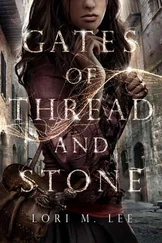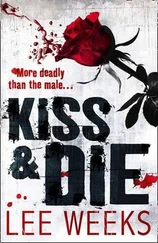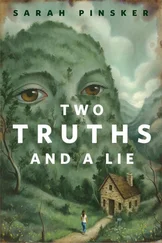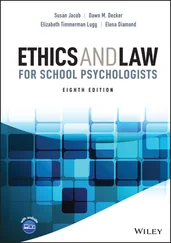As we were talking, Oswald told me that he had never talked so much about himself to anyone before. If so, I thought, he must have lived a lonely life, for I found him, in fact, rather reticent on any subject outside politics. His father died before he was born, he said in a tight-lipped way that did not encourage further questioning—“I believe he was an insurance salesman.” He refused to say what his mother did for a living and admitted to having one brother. (I learned later that he had a half brother, too.).
What he wanted to talk about, and the reason for our interview, was his anger at the US embassy. On a Saturday morning two weeks before, he had presented himself at the US Consular office and demanded that he be allowed to swear an oath on the spot, renouncing his American citizenship. Richard Snyder, the consul on duty that weekend, had, according to Oswald, tried to discourage him and warned of the difficulties he could be getting into. Again according to Oswald, Snyder said he needed time to get the proper papers in order and make sure that Oswald had acquired Soviet citizenship and would not be left without a country. Furious at being stalled, Oswald threw his American passport onto Snyder’s desk. Snyder told Oswald to think it over and, if he still wanted to go through with it, come back and he would administer the oath. This made Oswald angry all over again: his passport was now in Snyder’s possession, and Snyder knew perfectly well that a visitor without a passport would not be admitted by the Soviet militiamen outside the building. Oswald next wrote to US Ambassador Llewellyn Thompson protesting Snyder’s behavior. He received a formal reply from the ambassador stating that it was every citizen’s right to renounce his citizenship and he could return at any time to take the oath.
Oswald’s complaints about the embassy’s “illegal” actions ran through our conversation until I pointed out that he was letting something comparatively minor keep him from going back to the embassy and either taking his passport back or taking the oath renouncing his citizenship. Why, when he had trekked halfway around the world, was he allowing anger to stand in the way?
“I would like to give my side of the story,” he said. “I want to give people in the United States something to think about.”
Three years later I returned to Russia to write a series for The Reporter magazine, and in the fall of 1963 I was a visiting scholar at the Russian Research Center at Harvard. On November 21 I drafted a letter to President Kennedy: a plea for Olga Ivinskaya, who had been loved by the poet Boris Pasternak and was said to be the model for the heroine, Lara, in his novel Dr. Zhivago . Soon after Pasternak’s death in 1960, Mrs. Ivinskaya was seized by the Soviet authorities and shipped to a prison area in the desolate Mordovian Autonomous Republic, where she was going blind. Her friends in Moscow were afraid that she was going to die from cold and lack of medical care. I wrote President Kennedy to ask if he would intervene for Mrs. Ivinskaya should he meet with Soviet Premier Nikita Khrushchev at a summit conference the following spring.
I asked a friend, Rose di Benedetto, with whom I worked at the Russian Research Center, to type up the letter, then addressed it to the president in care of his private secretary, Mrs. Evelyn Lincoln, because I had known her and thought she would see to it that the letter got through to him. Rose and I mailed the letter on the night of November 21.
The next afternoon Harvard Square was in chaos with the news that President Kennedy had just been murdered in Dallas. People wandered up the subway stairs looking dazed, with tears streaming down their faces. Men and women who had not seen one another in years fell into each other’s arms. Like every other place in America, we were a community pulled together by shock.
By chance I met Rose in front of a florist shop. “Isn’t it awful?” she said. “Now he’ll never see our letter. He’ll never get to help that lady.”
For a second we were, both of us, too stunned to think beyond our letter.
Then I asked: “Do they know who it is? Have they caught anybody yet?”
“Yes. His name’s Lee Harvey Oswald.”
“My God,” I said. “I know that boy.”
Two days later, on November 24, Lee Harvey Oswald was himself dead, the victim of an assassin’s bullet.
On November 29 Lyndon Johnson created the president’s Commission on the Assassination of President Kennedy, and for ten months the Warren Commission, as it came to be called, probed into the tragic and bizarre events in Dallas. Witness after witness was called, including Oswald’s widow, Marina, who scarcely spoke any English and had to testify through an interpreter. The Commission was able to establish what happened in Dallas. But it was unable to give a clear answer to the most intriguing question of all, the question that puzzles many people even today. Why?
That was one question in particular I needed to settle for myself. I needed to reconcile the quiet, rather gentle “Lee,” the boy whom I had met in my hotel room and who told me he was “unemotional,” with the dangerous “Oswald,” the man who shot the president. I was not at all sure how these two fit together.
If there was an answer to my question, Marina Oswald seemed the only person likely to be able to answer it. And so, through the offices of my publisher and her lawyer, I arranged to meet her with a view to writing a book.
As I came up the drive of her small ranch house in Richardson, Texas, outside Dallas, she ran over from a neighbor’s house to greet me. She was tiny, she looked like a child, and she had very large, light blue eyes.
“You met Lee?” It was the first question she asked. “Did you meet him once or several times? Did he speak Russian then?”
It came up again and again in our conversations. “Was he wearing his gray suit when you met him? His dark red tie? Didn’t he look nice in that suit? He was good-looking then, wasn’t he?” One day, when a neighbor came upon us working at the dining table, Marina simply nodded in my direction and said by way of introduction: “She knew Lee in Moscow.”
Marina’s life had been turned upside down. First there were the numbing events themselves, the assassination and Lee’s death. Immediately afterward, she was placed in protective custody and sequestered in a hotel. She was in the care of two organizations that were competing with each other and whose treatment of her was at cross-purposes: the Secret Service and the FBI.
The Secret Service was made responsible for her protection because it occurred to the attorney general, Robert Kennedy, and the new president, Lyndon Johnson, that Marina might meet the same fate as her husband. Later, the Secret Service was kept on because it occurred to the newly created Warren Commission that Marina held a Soviet passport, might be a Soviet agent, and might try to flee the country. Marina did not mind. She liked the Secret Service. She enjoyed the company of the agents, who babysat and burped her baby and regaled her with stories about President and Mrs. Kennedy and their children, whom they had also guarded.
The FBI was another matter. Marina instinctively mistrusted the FBI, equating it with the secret police in Russia. In addition, Lee had hated and feared the FBI, and Marina had taken over his attitude. As if that were not enough, a few days after Lee died, the FBI brought down an immigration official from New York who insinuated that unless Marina cooperated fully, she might be deported from the United States.
And so Marina was being manipulated by two sets of officials: one afraid she might leave the country; another threatening to throw her out. On every side she encountered suspicion that she might be a Soviet agent and might have been Lee’s accomplice. Apart from the Secret Service men, no one treated her as if she had feelings, as a woman who had just lost her husband and had lately given birth to a child. No one realized that as a Russian she was especially frightened of having government agents all around her and was secretly terrified of being sent to some American equivalent of Siberia. Because of the language barrier, she had no one in whom she could confide. She had only her husband’s brother, Robert Oswald, to turn to. From him, in spite of the fact that they could barely communicate, she was able to draw comfort.
Читать дальше
